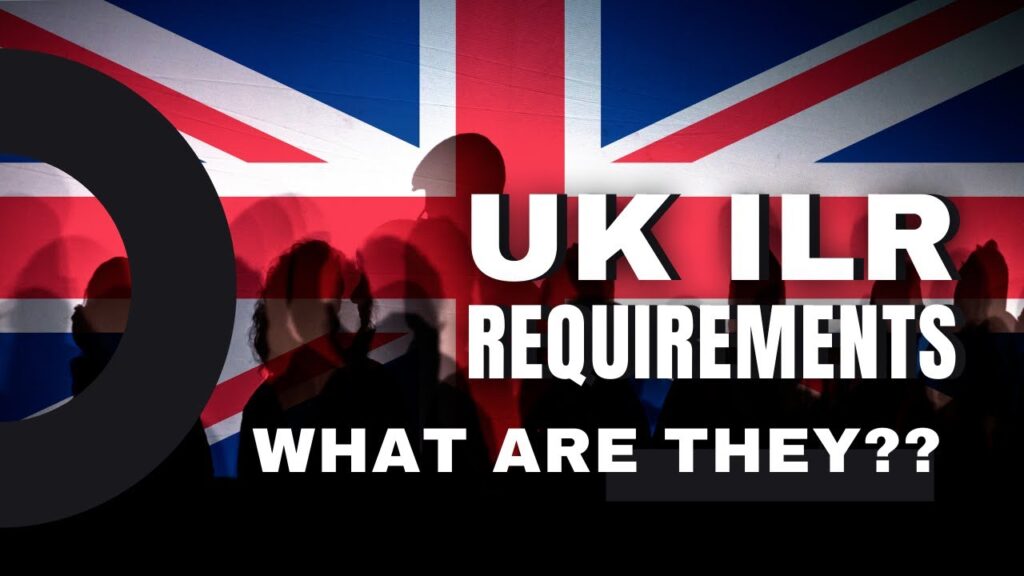No, If you have a Post-Study Work (PSW) visa in the UK, it’s good to know that the time you spend on it doesn’t count toward the years needed for Indefinite Leave to Remain (ILR). To settle in the UK permanently, you’ll need to switch to another visa that qualifies for ILR, like the Skilled Worker visa.
Moreover, there are two types of PSW visas: the Standard Graduate Immigration Route and the High Potential Individual Route. Both let UK university graduates work in the UK for two or three years after finishing their studies.
But only time on the Standard Graduate route counts toward the required 10 years for ILR under the Long Residence route.
If settling in the UK for good is your goal, take some time to plan your immigration path wisely. It’s a good idea to chat with an immigration advisor to understand your options and make sure you’re heading in the right direction for ILR.
A Simple Guide to ILR Requirements and Application Process

Gaining Indefinite Leave to Remain (ILR) in the UK is a crucial step for many foreign nationals, granting them permanent residence rights. To qualify for ILR, applicants must fulfill specific criteria and express their intention to settle in the UK.
Key ILR Requirements:
- Continuous Residence: Reside lawfully in the UK for a designated period (usually ten years for Long Residence or five years for routes like the Skilled Worker visa).
- English Language Proficiency: Demonstrate proficiency in English at a specified level, typically B1 of the Common European Framework of Reference for Languages (CEFR).
- Life in the UK Test: Pass the Life in the UK Test, evaluating knowledge of British history, culture, and social values.
- Immigration Rules Compliance: Adhere to all immigration rules and regulations during their stay in the UK.
- No Criminal Convictions: Have no serious or unspent criminal convictions.
Additional Considerations:
- Visa Route: Requirements may differ based on the visa route under which the applicant has resided.
- Exceptional Circumstances: Individuals demonstrating exceptional circumstances may still be granted ILR, even if not meet all standard requirements.
- Dependants: ILR may extend to eligible dependants like spouses or children.
Application Process:
- Eligibility Check: Assess eligibility thoroughly before initiating the application process.
- Gather Documents: Collect necessary supporting documents, including passports, visa papers, employment contracts, proof of residence, and English proficiency evidence.
- Complete Application Form: Accurately fill out the online application form, providing all required information.
- Biometric Enrollment: Attend a biometric enrollment appointment for fingerprints and a digital photograph if required.
- Decision-Making: The UK Visas and Immigration (UKVI) will assess the application based on eligibility criteria.
- Outcome Notification: Applicants receive a notification of the application outcome. Successful applicants receive a Biometric Residence Permit (BRP) confirming their ILR status.
Professional Guidance:
Given the intricacies of UK immigration regulations, seeking advice from a qualified immigration advisor or solicitor is highly recommended. Their expertise ensures tailored guidance, leading to a smooth and successful ILR application process.
Alternative Visa Options for ILR

- Skilled Worker Visa:
- Duration: Up to 5 years, extendable.
- Requirements: Job offer from a UK employer, specific salary criteria, and English language proficiency.
- Path to ILR: Apply after 5 years.
- Scale-Up Visa:
- Duration: Initially 2 years, extendable up to 5 years.
- Target: Fast-growing companies.
- Flexibility: Can switch employers after 6 months.
- Requirements: Job offer, salary criteria, and English language proficiency.
- ILR: Eligible after 5 continuous years.
- Global Talent Visa:
- Duration: Up to 5 years.
- Target: Leaders in academia, arts, culture, or digital tech.
- Flexibility: Change jobs without permission.
- Path to ILR: After 3 or 5 years, depending on expertise.
- Endorsement: Needed from an approved body.
- Spouse Visa:
- Duration: Initial 30 months, extendable.
- Eligibility: Married, in a civil partnership, or living together for 2 years.
- Requirements: English language proficiency, joint income of £18,600, and additional for children.
- ILR: Apply after 5 years of continuous residence.
Innovator Visa:
- For innovative entrepreneurs to create jobs and boost the UK economy.
- Requires a viable business idea endorsed by a designated body.
Start-up Visa:
- Supports talented entrepreneurs to establish high-growth businesses.
- Requires an innovative and viable business idea endorsed by a designated body.
Long Residence Route:
- For those living lawfully in the UK for 10 continuous years.
- Requires meeting certain requirements, including passing the Life in the UK Test.
Other Factors to Consider
Staying updated on the dynamic landscape of UK immigration policies is crucial for individuals aiming for Indefinite Leave to Remain (ILR). Regularly checking the UK Visas and Immigration (UKVI) website or consulting with an immigration advisor helps in understanding evolving eligibility criteria and application processes.
Furthermore, regarding Post-Study Work (PSW), it’s essential to note that the time spent on this visa doesn’t directly contribute to the 10-year continuous residence requirement for ILR. However, transitioning from PSW to an ILR-eligible visa, such as the Skilled Worker route, is possible by meeting specific criteria like securing a skilled position with the requisite salary.
Also, insights from individuals who successfully navigated ILR with a PSW background, often found in online forums and social media groups, offer valuable practical advice on strategies, documentation, and overcoming potential challenges.
By staying informed, understanding specific guidelines, and learning from firsthand experiences, individuals can enhance their chances of a successful ILR journey in the UK.
FAQ’s
Does PSW count in settlement?
Post Study Work Visa (PSW) does not lead to settlement in the UK. To apply for Indefinite Leave to Remain (ILR), individuals on PSW must switch to a settlement-eligible route, such as the Skilled Worker visa.
Does Tier 4 count towards ILR?
No, Student visas/Tier 4 visas are not eligible for settlement purposes. To qualify for ILR, individuals studying in the UK for five years on a Student visa must switch to a different visa category.
Does Skilled Worker visa count towards ILR?
Yes, a Skilled Worker visa can lead to Indefinite Leave to Remain (ILR) after continuous residence in the UK for 5 years. Meeting other eligibility requirements is also necessary.
Does youth mobility visa count towards ILR?
No, Time spent on the Youth Mobility Scheme Visa does not count towards ILR. However, it provides an opportunity to showcase skills to UK employers, potentially leading to sponsorship on a Tier 2 Skilled Worker Visa.
What happens after 2 years of PSW in the UK?
After the two-year Post-Study Work visa period in the UK, individuals must apply for a skilled worker visa, general worker visa, or another relevant visa to extend their stay.
What is the new rule for PSW in the UK?
The Post Study Work Visa (PSW) in the UK, as of 2024, allows students to stay for up to two years after finishing studies to look for work or set up their own business.
Final Words
In conclusion, it’s important to recognize that time spent on a Post-Study Work (PSW) visa does not directly contribute to the years required for Indefinite Leave to Remain (ILR) in the UK. To achieve a permanent settlement, individuals holding a PSW visa must transition to another visa route eligible for ILR, such as the Skilled Worker visa.
Furthermore, the distinction between the two types of PSW visas, the Standard Graduate Immigration Route and High Potential Individual, adds an extra layer of consideration, as only the former counts towards the continuous residence requirement for ILR.
Also, navigating this process successfully involves careful planning and, if needed, seeking guidance from immigration advisors to ensure the right path is chosen for a smooth journey toward ILR and long-term residency in the UK.

